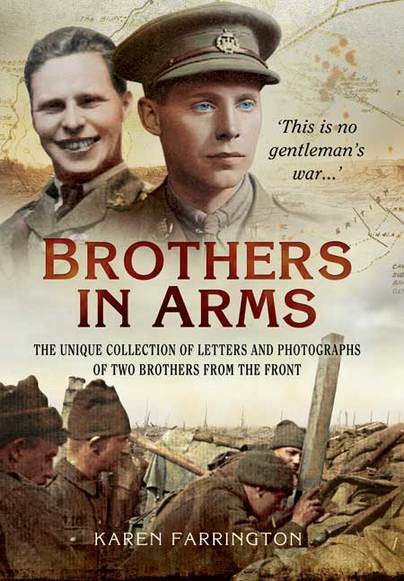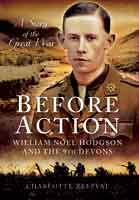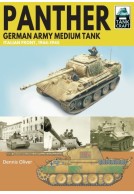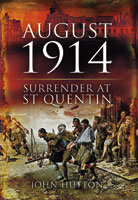Brothers in Arms (Hardback)
The Unique Collection of Letters and Photographs of Two Brothers from the Front Line during the First World War
Imprint: Pen & Sword Military
Pages: 189
ISBN: 9781473825611
Published: 7th May 2015
(click here for international delivery rates)
Need a currency converter? Check XE.com for live rates
| Other formats available - Buy the Hardback and get the eBook for free! | Price |
|---|---|
| Brothers in Arms ePub (20.3 MB) Add to Basket | £6.99 |
Hidden away in the back of an old desk drawer was a dusty pile of school-style exercise books. In them were the recollections of a young officer who had fought with the Essex Regiment in the First World War from the Battle of Neuve Chapelle in 1915, through the mud and misery of Ypres, to see victory in 1918. Discovering the memoirs of Lieutenant Robert D'Arblay Gybbon-Monypenny was not the only surprise, what was even more remarkable was how well-written they were, how vividly life and death in the trenches was portrayed.
That life in the trenches saw Robert hit by a sniper's bullet, buried in appalling mud-slides, choked in a chlorine gas attack and almost bayoneted by one of his own men, driven insane by the perpetual shelling. Inevitably, he was wounded as he led his men over the top at Arras, yet somehow he survived.
To add to these riches were letters home from both Robert Moneypenny and his brother, and fellow officer, Phillips, who won the Military Cross with the Royal West Kent Regiment, but who was killed just four months before the end of the war.
The collection of memoirs, letters and personal photographs are woven together to produce a gripping and powerfully frank testimony – one that will come to be recognised as amongst the finest personal accounts of the First World War ever to be published.
One of the best books on the Great War to have been released in the past few years.
Essex Regiment
This book is based on letters sent during the war by Robert (Robin) D’Arblay Gybbon-Moneypenny and his younger brother Phillips Burnley Sterndale Gybbon-Moneypenny, to their Aunt Ethel, who lovingly kept them. In addition Robin wrote his own memoirs in later years, and this forms the bulk of the text.
ww1geek
Robin’s letters generally consist of his requests for clothing and supplies – for himself and his men – an interesting insight into the evolving and ongoing needs of the soldier in the trenches (for example requesting opium pills to give to wounded soldiers), as well as a testament to the concern officers had towards the welfare of their men. Although mindful of the level of information being given, both brothers’ letters do provide quite a lot of detail about life in the trenches, including several near misses and sometimes quite grisly accounts of comrades’ deaths – hardly the reassurance a worried relative was looking for.
In addition to the text, the book contains several of Robin’s photos, taken with a Kodak camera during the early part of the war until he was forced to send the camera home. These depict various aspects of trench life, and are a fascinating complement to his letters.
With two brothers’ wars to follow the book at times feels disjointed, and the usual caveats around accounts written many years after the war must be borne in mind (particularly the several ‘verbatim’ recollections of some conversations). However, the letters offer a real contemporary insight into how these two young men perceived and experienced the war, and the memoir is one of the most vivid and insightful I have read in recent times.
The 100th anniversary of the Great War has seen some exceptional accounts come to light and this has to rank among them. Hidden away at the back of an old desk for many years were a pile of old exercise books filled with the recollections of a young officer, Lieutenant Robert D'Arblay Gybbon-Monypenny of the Essex Regiment, from the Battle of Neuve Chapelle in 1915 to final victory in 1918. Among the recollections from the bulk of this book, were also letters from himself and his brother, Phillips, who won the MC with the Royal West Kents.
The Great War Magazine
A remarkable account.
10/10
The recollections of a young officer [who describes] living conditions as appalling.
Robert Bartlett
Like all works about the First World War that deal with individuals in the trenches and the impact of the war has on their lives, the book can be a difficult read as sympathy grows for the writer and his men as they live and die. This is said to be a unique collection of letters and photographs from the front written by two young men who were heavily involved in the fighting for a number of years and whose writing gives authenticity to an existence we have all been spared. Four very hard years of war thankfully recorded. The book being a tribute to all those young men.
The Military History Group
About Karen Farrington
Karen Farrington is a former Fleet Street journalist turned author, researcher and editor. Among the many titles she has to her name are Hero of the Fleet, the biography of First World War sailor William Stone, A Short History of World War II, Victory in Europe and Victory in Japan. She edited the memoirs of veterans Henry Allingham and Claude Choules.
















